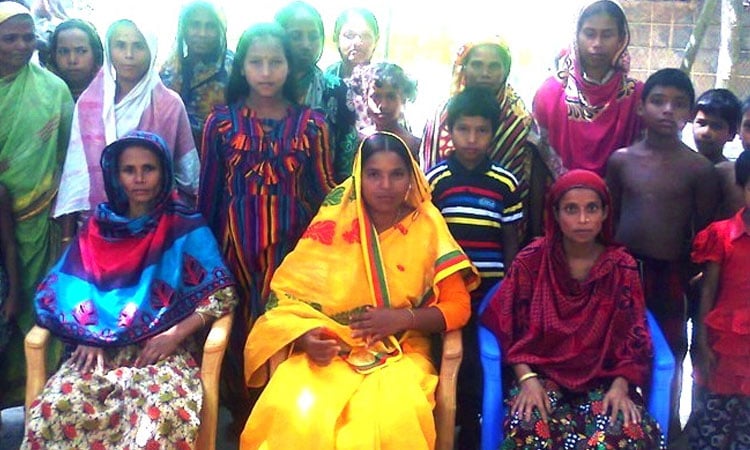News Flash
News Flash

RANGPUR, Nov 1, 2025 (BSS) - The extremely poor families headed by women in Sarkerpara village of Ramnagar union in Sadar upazila of Nilphamari have overcome the cycle of poverty by achieving socio-economic and women's empowerment.
The 116 poor families of the remote village, who were earlier trapped in the vicious cycle of generational poverty even a decade ago, have brought about a transformational change in their lives by becoming self-reliant and collectively empowered by 2016.
A resident of the village and former female Union Parishad Member from reserved wards of Ramnagar union Anufa Begum told BSS that the villagers, women community in particular, are playing a vital role in their family and community affairs.
"The villagers achieved solvency through community solidarity and action groups, collective actions, engagement in income generating activities (IGAs), mainly off-farm, and with local union parishad in particular," she said.
This transformation started in 2009 when the villagers formed 'Para Unnayan Committee (PUC)', community-based savings groups, Women's group - 'EKATA' at ward levels and natural leaders' organisation (NLO) with support of the SETU project.
CARE Bangladesh in partnership with five NGOs completed implementation of the project in 2016 in 25 unions, characterised by high levels of extreme poverty, under seven upazilas of Rangpur, Nilphamari, Gaibandha and Lalmonirhat districts.
Describing their difficult journey to success, former SETU project beneficiaries from Sarkerpara village said they are trying their best to sustain the transformative changes that took place in the remote rural area nine years ago.
"In the very beginning, we identified our problems first and took the decision to address them collectively," said Sufia Begum, former President of the PUC of Sarkerpara village.
"We identified open defecation practice as a major reason for frequent diarrhoea and dysentery and many other waterborne diseases. Then we went for a Community-Led Total Sanitation approach to stop open defecation," Sufia said.
In this way, the villagers ensured cent percent sanitation for all 116 households with their own resources within a month under the leadership of natural leader of the village Anufa Begum, also a former member of Ramnagar union.
"The villagers used SETU project's grants along with mobilising local resources, took collective actions to diversify livelihoods, built their own organisations and relationship with local union parishad," she said.
The 25-member EKATA group made the village free from child marriage, malnutrition, illiteracy and violence against women. The able couples, pregnant women and adolescents are now totally aware of health, hygiene and nutrition.
The villagers formed a community based 'Sarkerpara Women Savings Group' with 32 members with Anufa Begum as its Secretary to cope with lean season as they had to sell labour in advance and household goods earlier at that time.
They started with saving fistful rice. With an increase in earning for engagement in IGAs, they turned fistful rice into cash for group raising capital to Taka 18,000 in 2015.
"The SETU project then added Taka 20,000 as grant to the savings group to raise its capital when it started providing loans up to Taka 8,000 among its members for IGAs," Anufa Begum added.
Beneficiaries Anufa Begum, Tahuza Begum and Sufia Begum said they took Taka 7,500 to 8,000 each as interest free loans from the group and invested in off-farm businesses, shops and small-scale enterprises to earn. Their children are now going to school.
The entire village is now free from water-borne diseases, child marriage, polygamy, malnutrition, and maternal and neonatal mortality rates have dropped to zero.
The socially and economically empowered women of Sarkarpara village said that they are trying to sustain their hard-earned success on their own even after the project period ended long ago.